His name is Boris. And he’s fine.
The BC Conservation Officer Service tells mainstream media that they receive thousands of bear calls every year, yet the $230.00 fines for unsecured trash that they are authorized to give out are rarely imposed. This has resulted in neighbourhood conflicts and a deep distrust of the BCCOS. The bear called Boris was not to be relocated, he was to be destroyed for being “significantly habituated to humans,” the language used to place Boris in the red on the BCCOS matrix. A sense of panic set in with many in the neighbourhood.
Early in July 2020 a trap was set for a “habituated” black bear near the community of Shawnigan Lake. Neighbours who knew the bear were upset that a trap had been set for him. He had caused no problems, and some residents had seen him around for years. A big, somewhat clumsy bear, he appeared infrequently and left when verbally told do to so. In recent weeks some members of the community had been leaving out their trash.
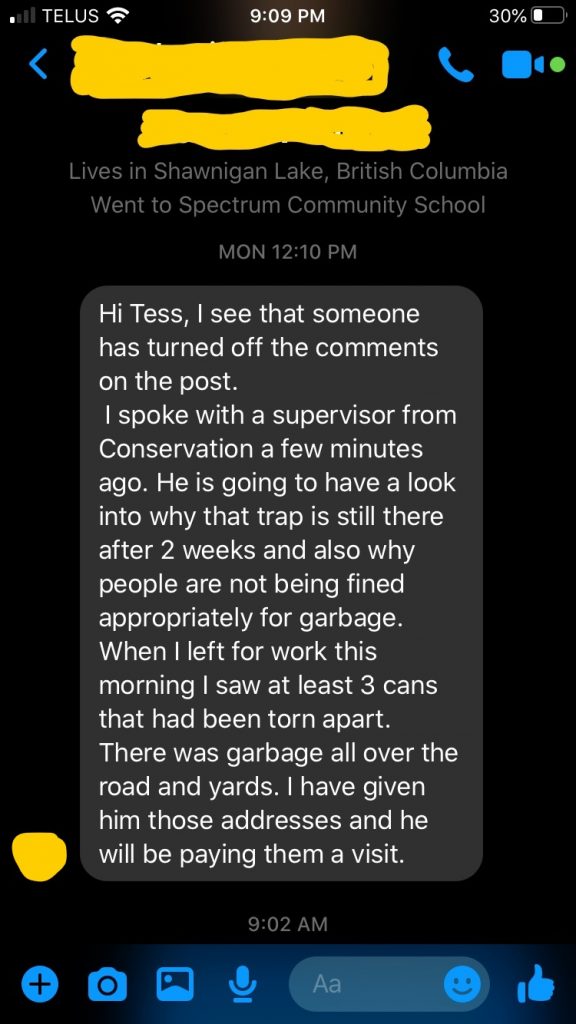
On July 26 the temperature at Shawnigan Lake was 29°C and was expected to climb in the week ahead. Many regions refuse to set traps for wildlife during hot weather, but not BC. Resident Tess Weaver decided to do something to protect the bear that she and many other neighbours had grown fond of. She taped paper signs on the trap and closed the door, noticing that it didn’t latch. Something had broken on the door previously. She was seen on a doorbell camera from a house across the street, which was evidently sent to the Conservation Officer Service. She has received a $345.00 fine, which she will contest.
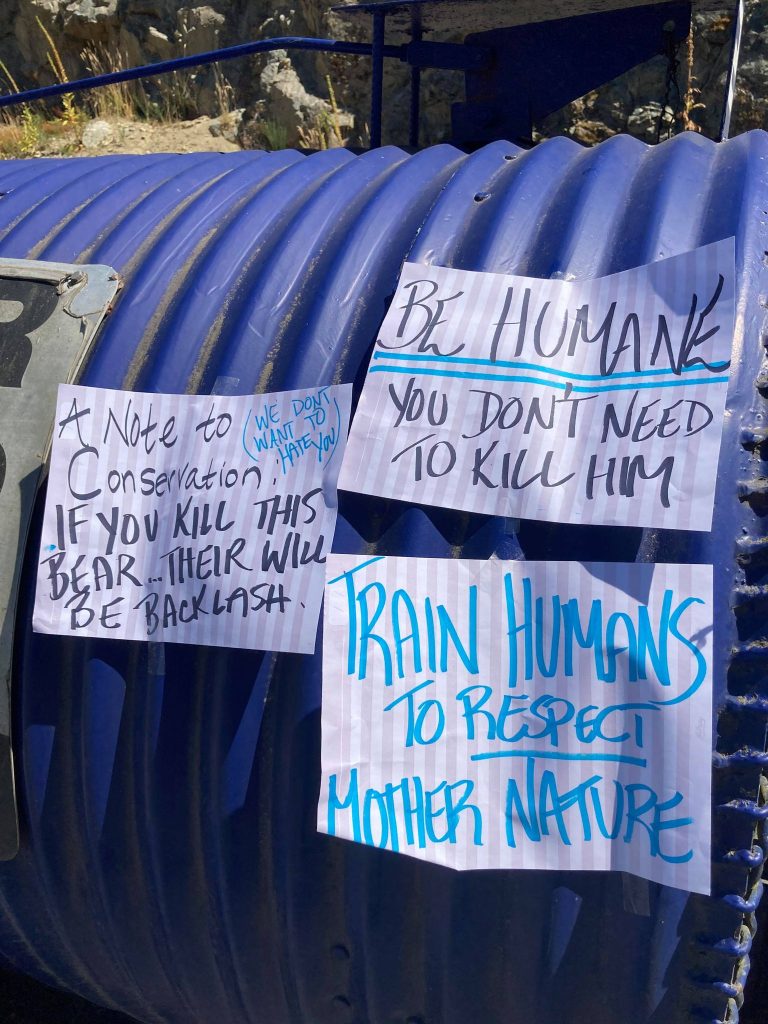
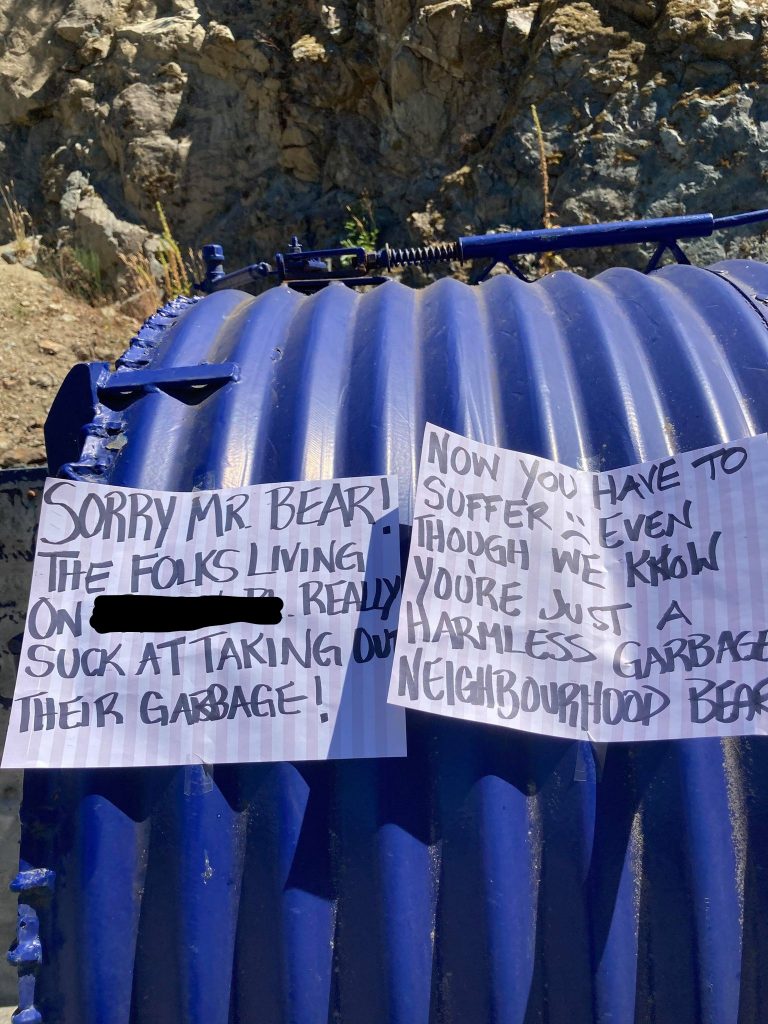
On September 9 the Conservation Officer Service made an inflammatory post to their Facebook page, claiming that they’d received reports that the trap had been tampered with soon after it was set, but we can see from a resident’s text that it had in fact been at its location for at least two weeks. Oddly, the trap on the BCCOS official Facebook post did not resemble the actual trap that was used in Shawnigan Lake.
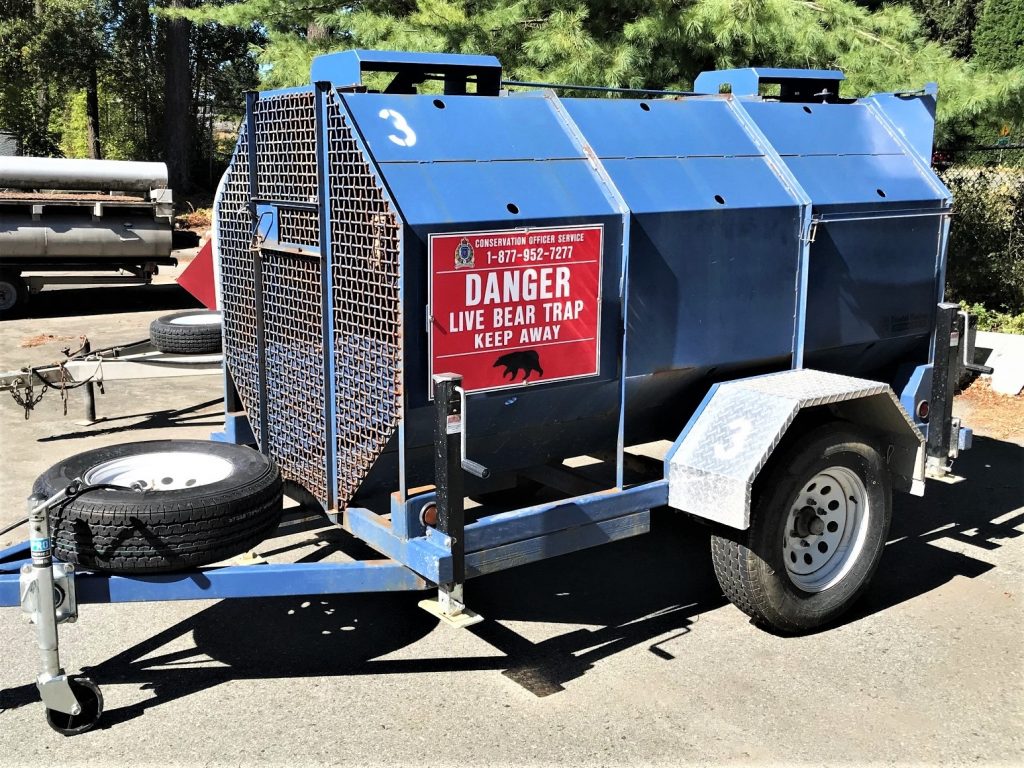
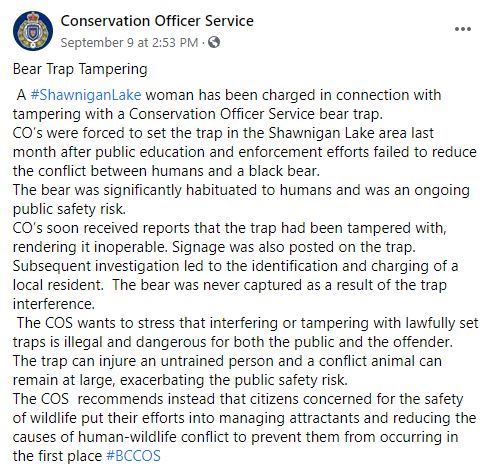
Bryce Casavant, former Conservation Officer and Conservation Policy Analyst with Pacific Wild, takes issue with the BCCOS post, saying that this is trial by Facebook and Twitter, and notes that the language used by the office lacks the term “alleged” regarding a possible crime, which makes it a false accusation. Misleading the public with the use of a photo of a very different trap than the one actually used is also a questionable decision from a public body.
Tess Weaver and her neighbours have taken issue with garbage left out by other residents in the past, with no result from repeat offenders. Her frustration is understandable given that the Conservation Officer Service lays the blame for their wildlife kills at the feet of everyone who doesn’t secure attractants, leaving those who are diligent to mourn the most.
She writes:
“I didn’t want to start a community war but it got to a point where someone had to stand up. Humans are the decision makers, a bear doesn’t know he shouldn’t be eating garbage, but we know. So it is on us to, however inconvenient, to create an environment where humans and wildlife coexist. This is literally in my backyard so if I can make a small difference this is where I want to make it. The argument isn’t about this one bear, it’s that if we don’t clean up our act it’s going to be the next bear and the one after that. It seems like a small battle but the wildlife population has dropped 68% in the last fifty years. Is it really too much to ask that we secure our garbage?”
*Video by Tess here
Boris is a docile bear who leaves the area when he’s told to, or when a car pulls up unexpectedly. Video credit: Tess Weaver

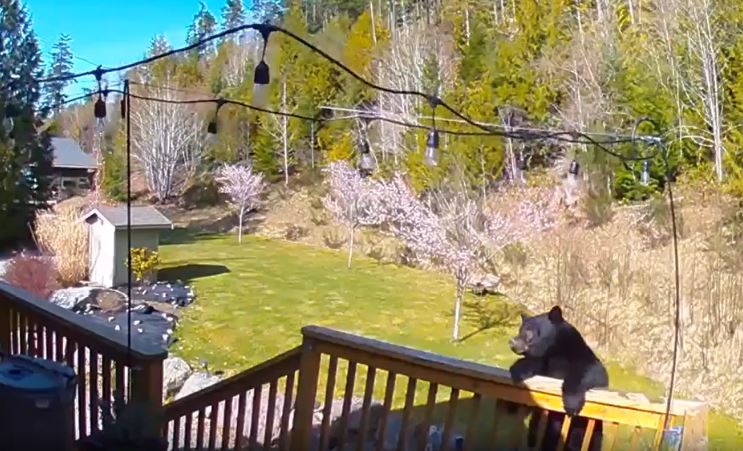
Recent Comments